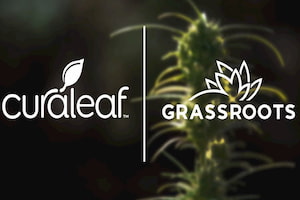
Grassroots Cannabis, which recently entered into multiple sale-leaseback deals with Scythian Real Estate, is nearing the finish line of its merger with Curaleaf. The merger between Grassroots and Curaleaf is expected to create a major force in the U.S. cannabis industry.
Grassroots Cannabis Thrives in Retail Marijuana Space
Grassroots Cannabis is one of the largest multi-state cannabis operators in the country, with a focus on marijuana growing, cultivation, and retail. The story of Grassroots begins with Mitch Kahn, its CEO and co-founder. Kahn started the marijuana growing and processing company after spending decades in the real estate industry and recognizing just how promising the cannabis space could be for investors. Other important members of the Grassroots Cannabis team today include Matt Darin (Chief Operating Officer), Steve Weisman (Chief Strategy Officer), Perrine Knight (Chief Administrative Officer), and Talley Wettlaufer (Head of Retail).
When Kahn founded Grassroots Cannabis, the marijuana company was funded primarily by friends and family. Over the years, Grassroots has expanded and continued to raise funds through other investors and in a variety of deals. While Kahn is set to remain with the company as a board member after the Curaleaf merger is officially complete, he will no longer be involved in the day-to-day operations.
Integration of Grassroots and Curaleaf to Create Dominant Retail Cannabis Company
Now that the Grassroots-Curaleaf merger has been approved at the federal level, the two companies are in the process of receiving final approvals from state and local governments. In anticipation of getting state approval, Grassroots and Curaleaf are preparing to scale their integrated businesses and carve out a dominant spot in the retail cannabis industry.
Business has remained steady for Grassroots Cannabis during the COVID-19 pandemic. Many states declared marijuana dispensaries “essential businesses” that can remain open for order pick up, including all the states in which Grassroots operates. This has allowed the company to continue building its data infrastructure, utilizing automation, and strengthening operations in exciting markets like Maryland, Michigan, North Dakota, and Pennsylvania.
Grassroots Cannabis and Scythian Real Estate Close Sale-Leaseback Deals in North Dakota and Pennsylvania
Even before the expected merger, Grassroots Cannabis already has a strong presence in several important U.S. markets such as Arkansas, Illinois, Maryland, Michigan, Missouri, North Dakota, Ohio, Oklahoma, and Pennsylvania. Grassroots recently bolstered its presence in North Dakota and Pennsylvania with two sale-leaseback transactions with Colorado-based Scythian Real Estate.
In June 2020, Grassroots sold two North Dakota dispensaries to Scythian and subsequently entered into a lease agreement with Scythian for continued operation of the dispensaries under the store name Herbology. More recently, Scythian acquired a medical marijuana dispensary located at 109 Main Street in Bradford, PA and then leased the property back to Grassroots. The total size of all three properties acquired by Scythian is approximately 13,000 square feet.
Contact Scythian Cannabis Real Estate
These kinds of sale-leaseback deals are common in the retail cannabis industry and allow businesses like Grassroots Cannabis to expand their retail operations without diluting capital. Scythian Real Estate Fund LLC works with cannabis operators throughout the United States.
If you are a cannabis operator looking for a trusted real estate partner, email Scythian today.
PLEASE NOTE THAT THIS BLOG IS NEITHER AN OFFER TO SELL NOR A SOLICITATION OF AN OFFER TO BUY SECURITIES IN SCYTHIAN REAL ESTATE FUND.







